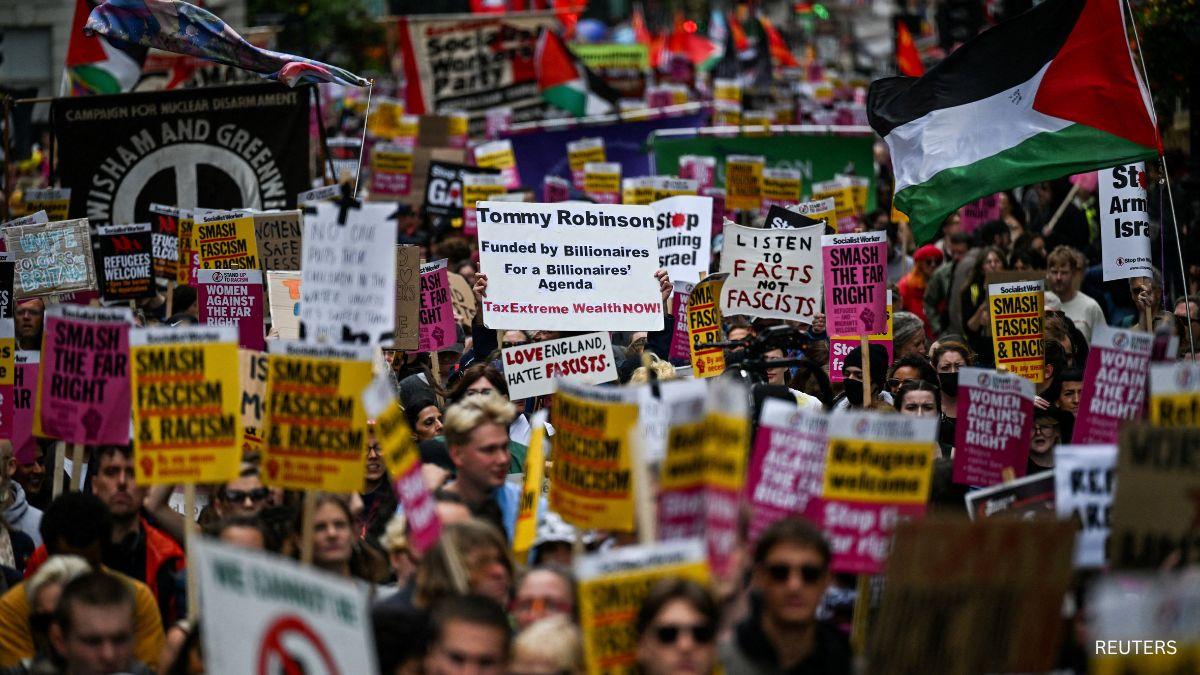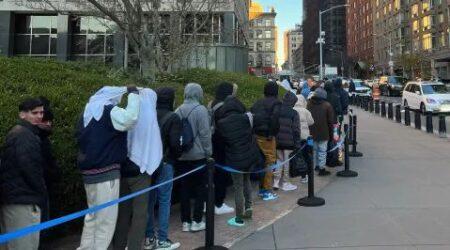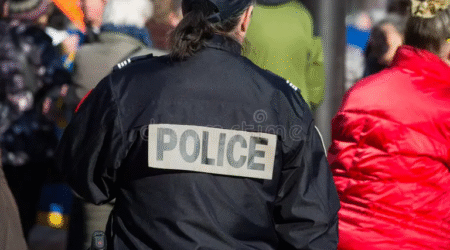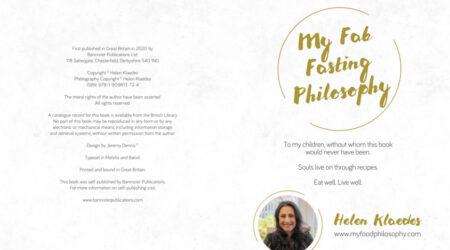By Ex Guardian Journalist
Sun 14 Sep 2025 07.00 BST
Tens of thousands of people marched through central London on Saturday in what police described as the largest anti-immigration protest of the year, as anger over Channel crossings, asylum housing and cultural identity erupted onto the streets.
The “Unite the Kingdom” rally, organised by far-right activist Tommy Robinson, drew a crowd estimated between 110,000 and 150,000. Protesters carried Union Jacks and St George’s flags while chanting against the government’s handling of migration. Some called for the resignation of the prime minister, while others invoked patriotism with cries of “God bless the United Kingdom.”
Violence flared when groups of demonstrators clashed with officers after attempting to break away from the authorised route. The Metropolitan Police reported more than two dozen officers injured, four seriously, and at least 25 arrests. Bottles, flares and projectiles were thrown, forcing riot units to intervene.
Behind the march lay a mix of grievances. Record small-boat crossings across the Channel have become a symbol of government failure, despite ministers’ repeated promises to “stop the boats.” Councils say temporary asylum accommodation has strained housing, schooling and healthcare, fuelling resentment in already stretched communities. Organisers also framed the protest as a defence of national culture, warning of rapid demographic change — rhetoric critics said risked scapegoating minorities and deepening social division.
Politicians across the spectrum condemned the violence, with ministers calling the attacks on police “unacceptable.” Opposition figures and anti-racism campaigners warned that normalising hardline rhetoric could embolden extremist groups.
Saturday’s march, however, underscored a wider truth: public disillusionment with mainstream politics has created space for movements once confined to the fringes. For some, the rally was an act of patriotism; for others, a dangerous escalation of division.
A nation at a crossroads
The protest will be remembered less for its exact numbers than for what it revealed: a country unsettled over questions of identity, borders and belonging. For some, the chants of “God bless the United Kingdom” were a rallying cry of pride; for others, they sounded as a warning of exclusion.
Whether this movement hardens into something more dangerous, or forces leaders to confront legitimate concerns with honesty and care, will shape not only the future of immigration policy but the story Britain tells about itself.
Επισκόπηση
Χαρακτηριστικά:
- Ex Guardian Journalist







Αφήστε σχόλια σχετικά με αυτό